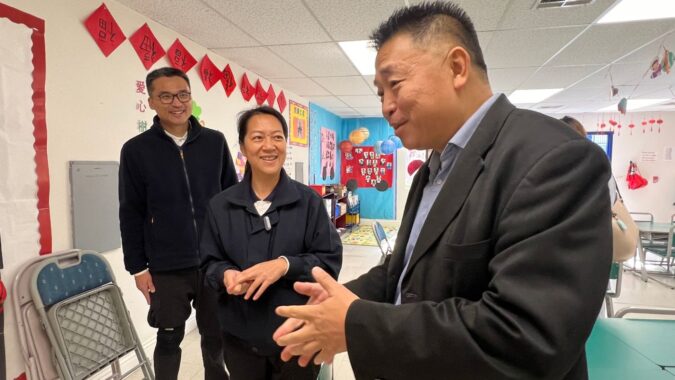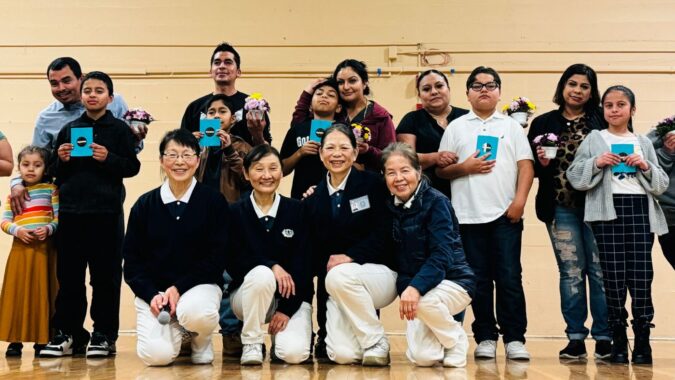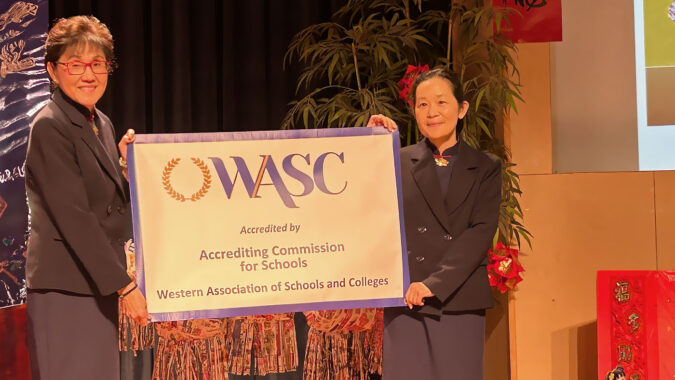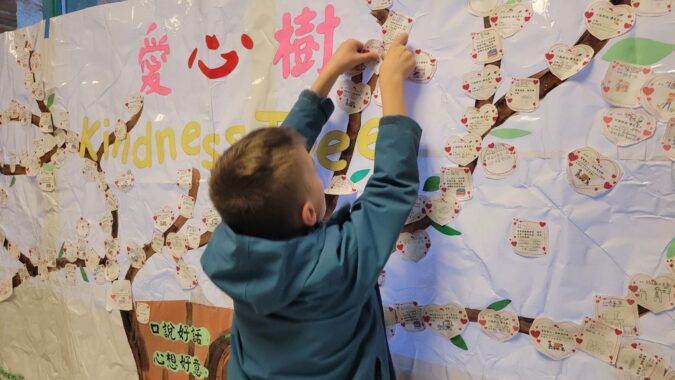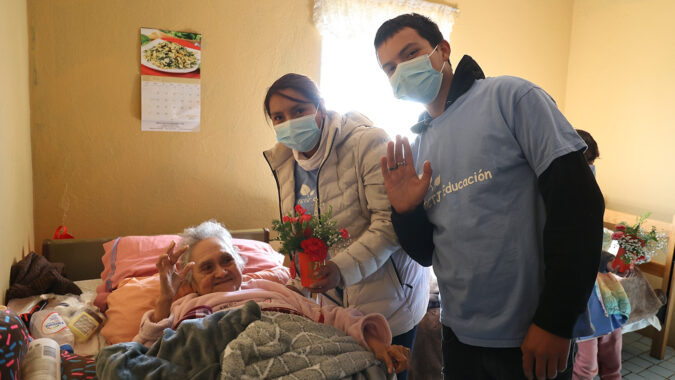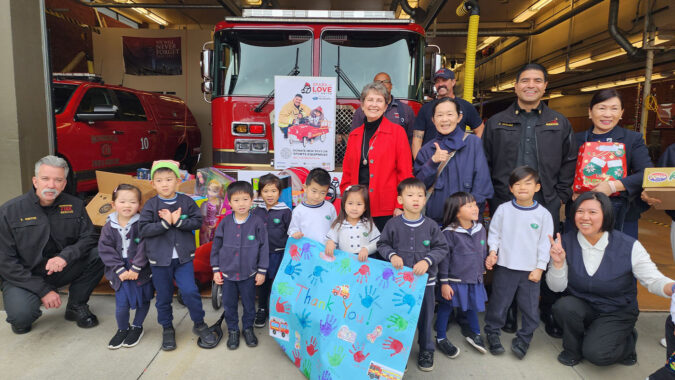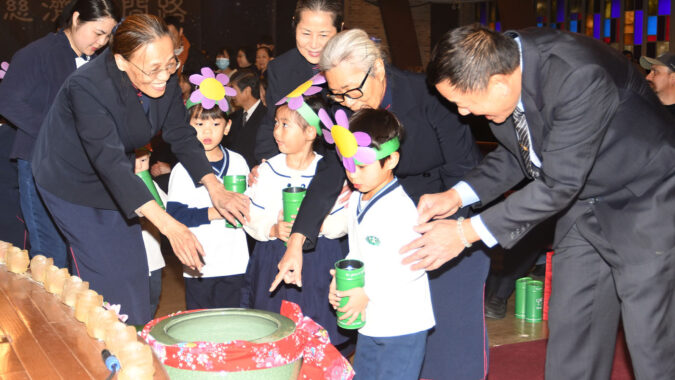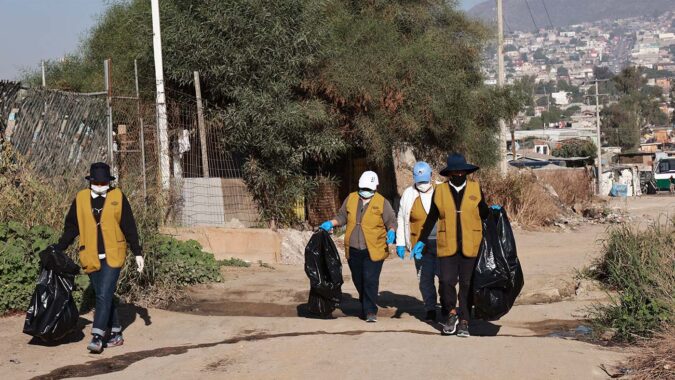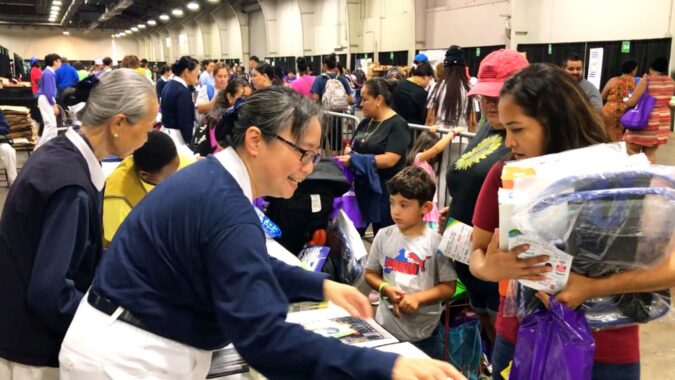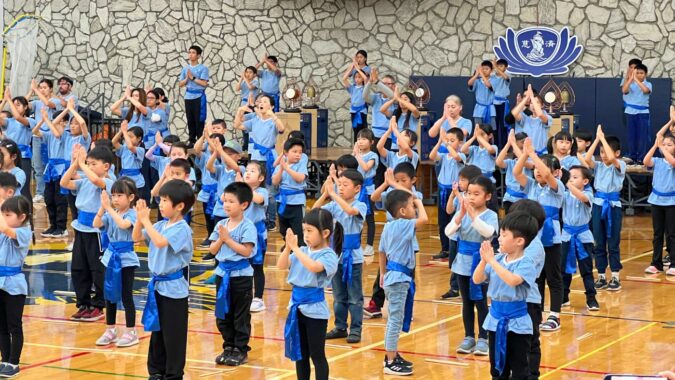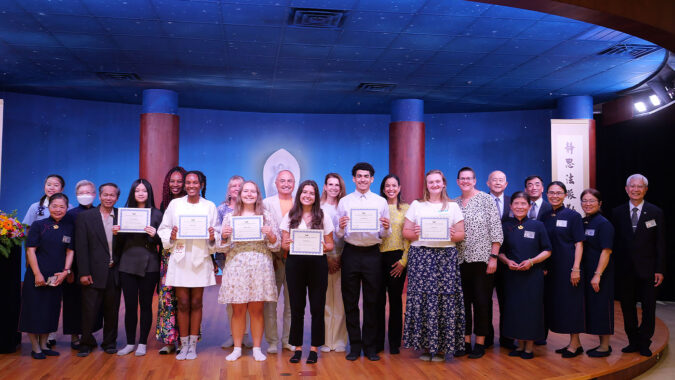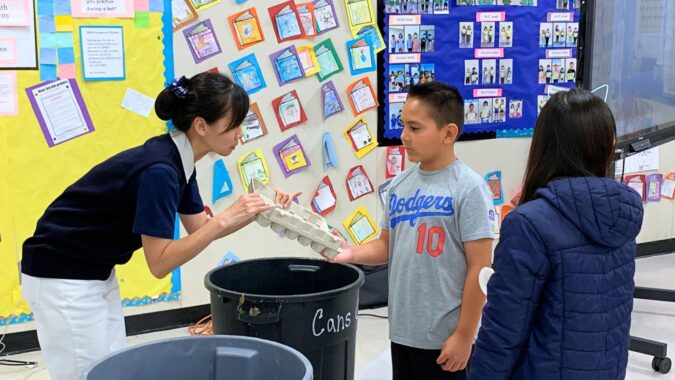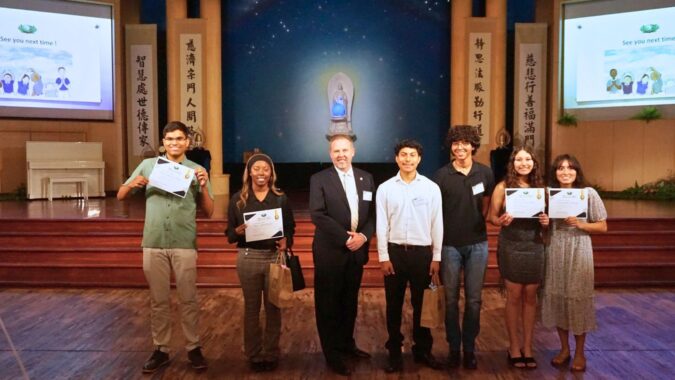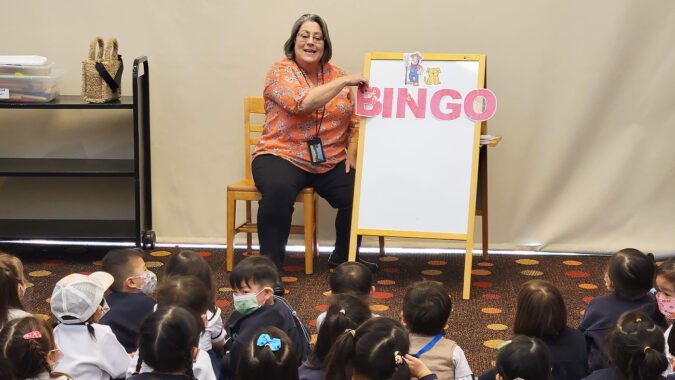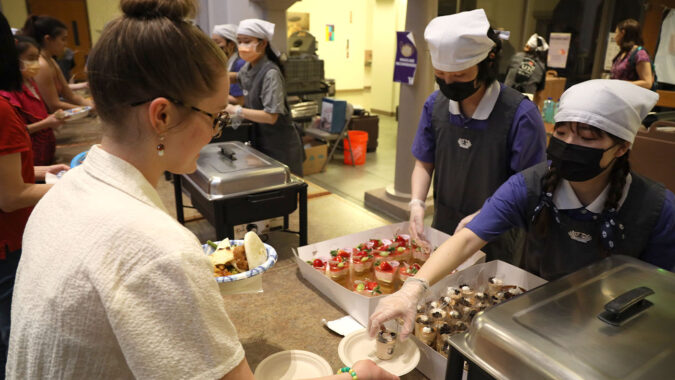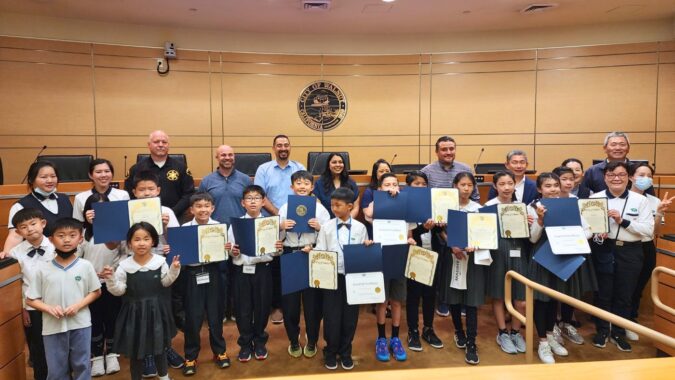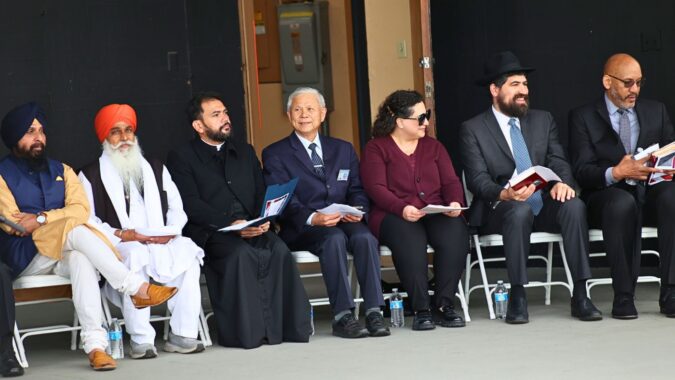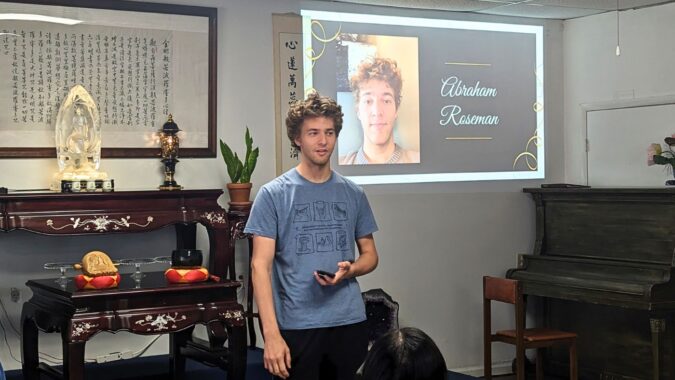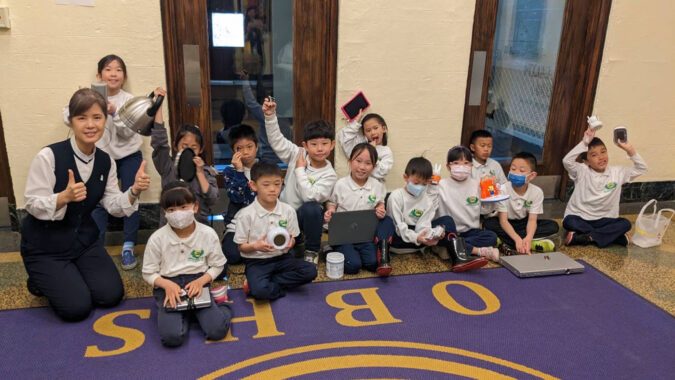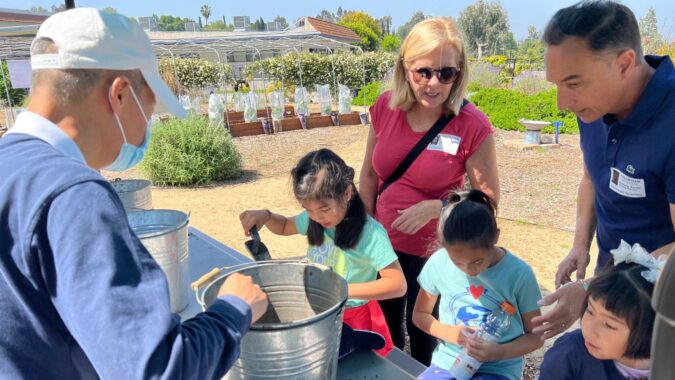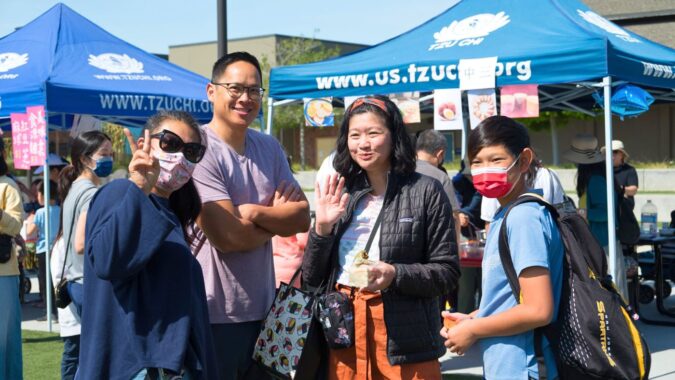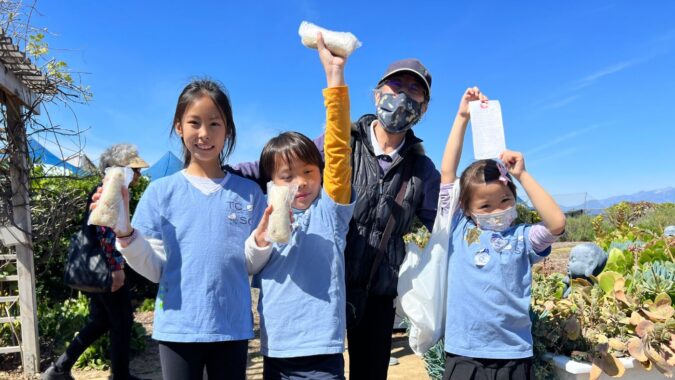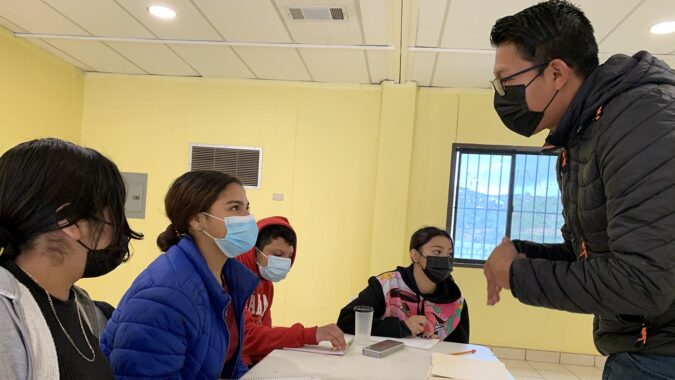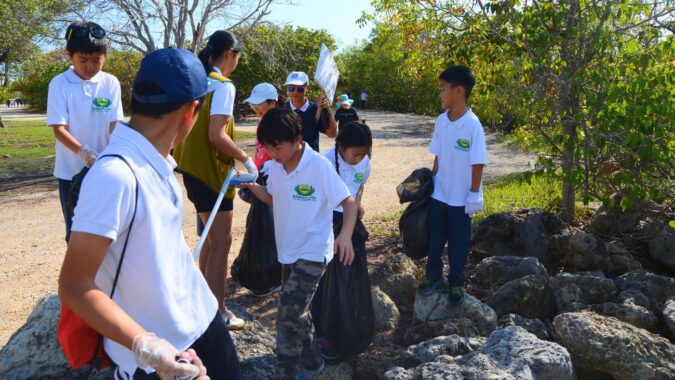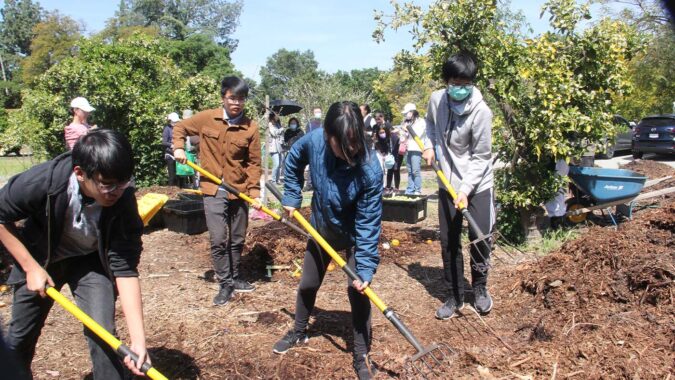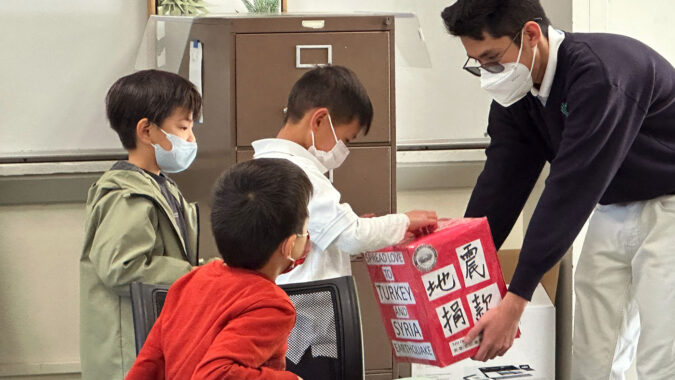Written by Adriana DiBenedetto
What does it mean to build better together?
On October 24, 2020, Tzu Chi New York hosted the first of three Youth Future Global Dialogues as part of a thematic virtual series in collaboration with the UN75 initiative focusing on the future of humanity and the planet. The series aims to connect youth internationally with the causes they’re most passionate about — while giving them the tools they need to generate a profound and positive change for the future. But to effectuate change for the generations to come, we must first identify the obstacles that stand before us in the present. Helping explore the topics at hand were remarkable young professionals such as Dr. Emily Huang, Elliot Maclean, Grace Kwon, Dooree Moon, and Dustin Liu.
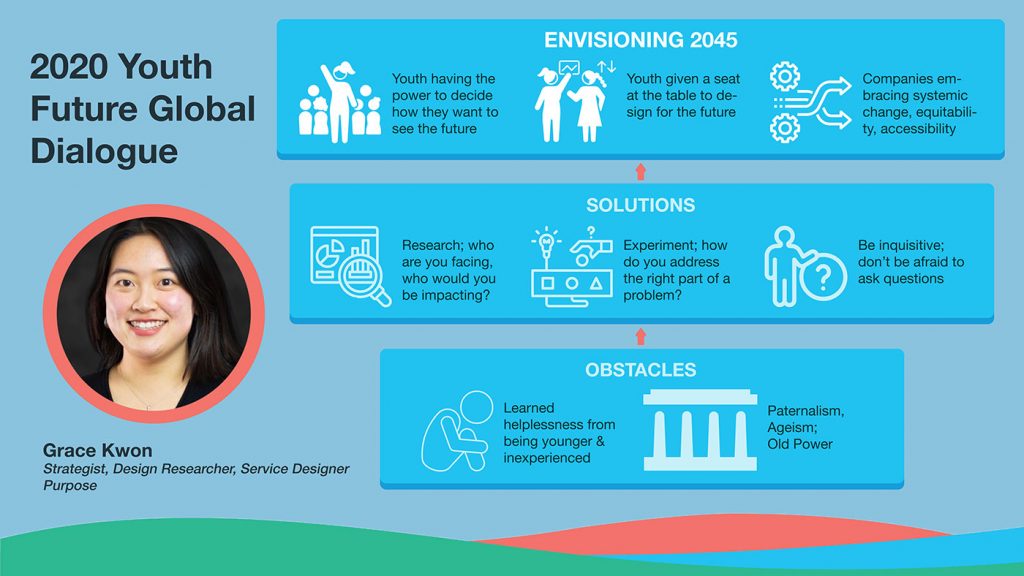
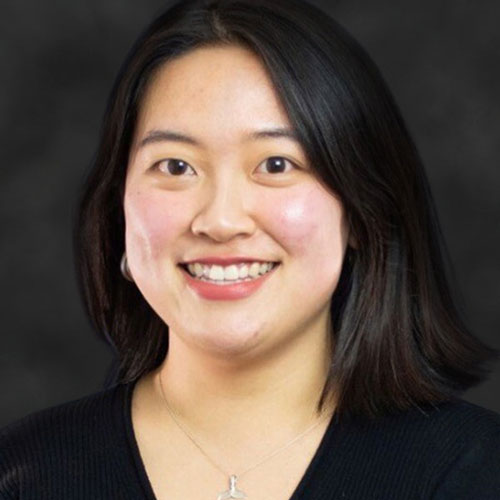
Grace Kwon is a strategist at Purpose, an international strategy consultancy. Through Grace’s work with UN-Habitat, she led a group of fifteen designers comprised of North Korean refugee youth and South Korean youth to co-design a hypothetical unified Korean education system.
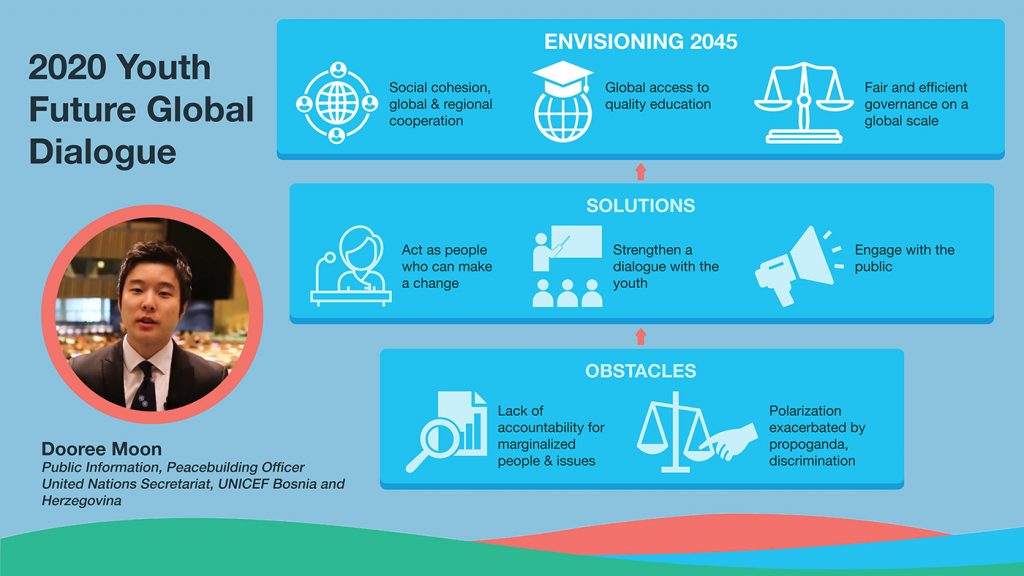
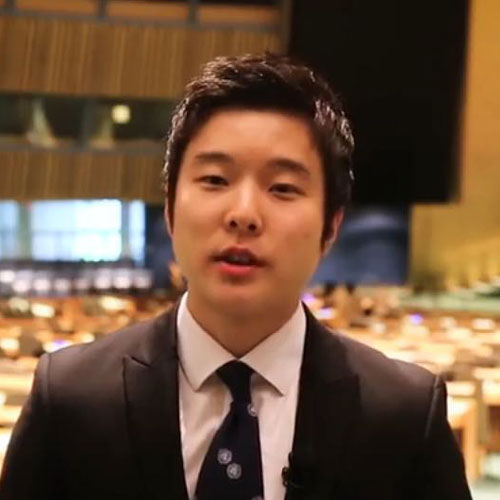
Dooree Moon has worked in the UN Secretariat as a Public Information Assistant, and as a Peacebuilding Officer at UNICEF in Bosnia and Herzegovina.
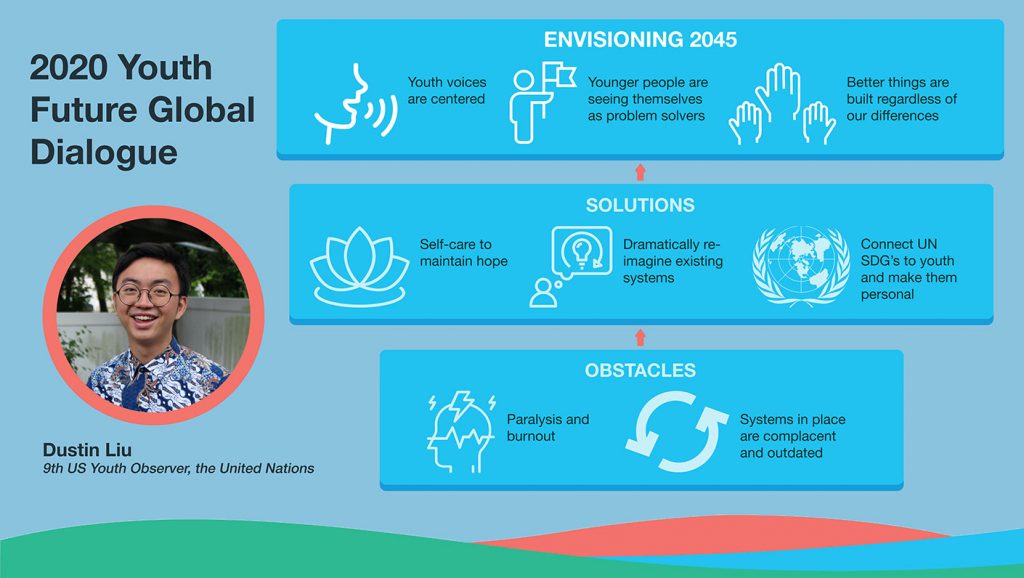
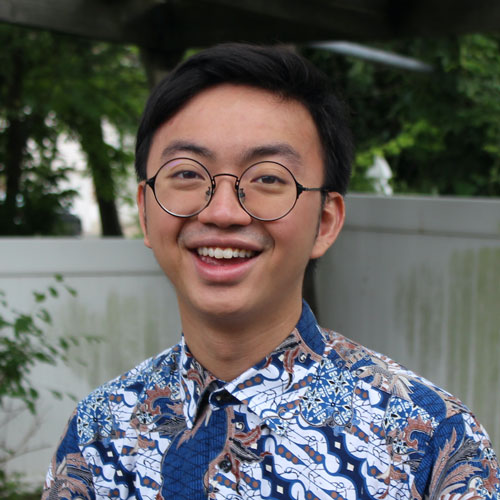
Dustin Liu is currently the 9th US Youth Observer to the United Nations, where he connects young people to significant global issues.
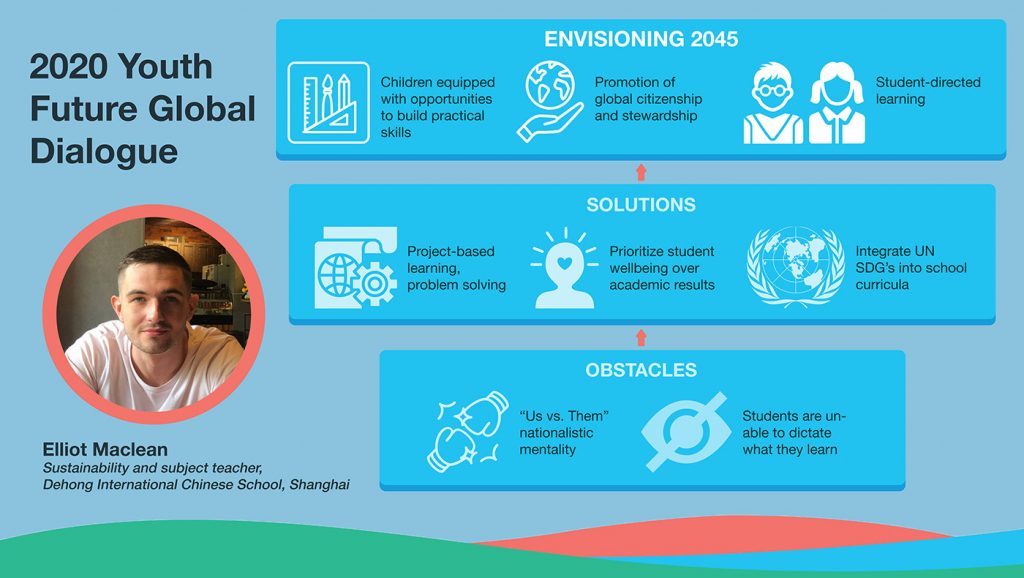
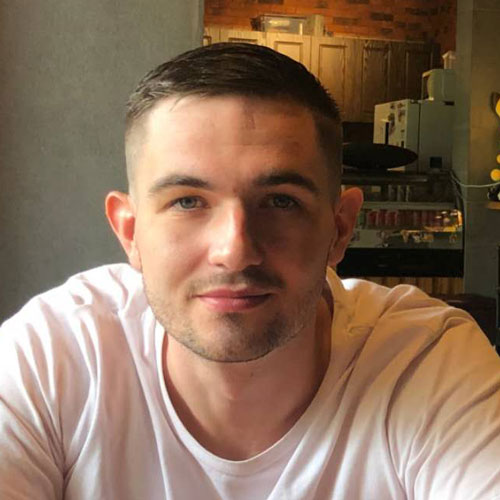
Elliot Maclean is a sustainability leader and subject teacher at Dehong International Chinese School in Shanghai, and has also taught at the British International School in the UAE.
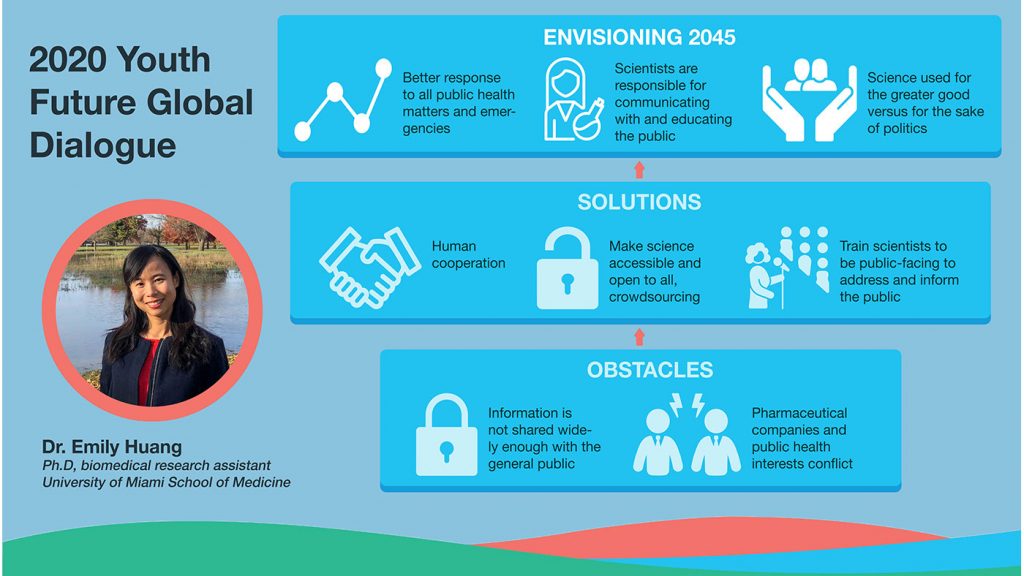
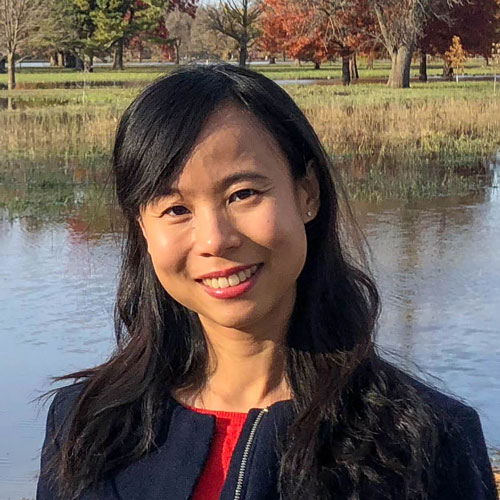
Emily Huang, Ph.D. is a biomedical research scientist at the Miller School of Medicine at the University of Miami.
With outstanding panelists like these and a theme of “Envisioning Future 2045 in a Post-Pandemic World,” deep conversations encompassing ethics, education, philanthropy, innovation, medicine, and the environment, were soon brought to light. In this day and age, as technology elongates the distance between one another — both physically and emotionally — individuals may forget how interconnected we are, and how multilateral institutions like the UN only become more important in moments like these.
I think that at the root of it, we really need to start reassessing the distance that we assume between each other. I think at the end of the day when you talk about the socialization of the way in which we get polarized on social media, it comes from the assumption that it's ‘us’ versus ‘them.’ And I think as much as possible when I talk to young people, ‘how do we approach things from a place of consensus?’ How do we approach things from a place of, ‘at least we can agree that, dot-dot-dot.
Dustin Liu, US Youth Observer to the United Nations
Indeed, to become problem solvers, one must take the opportunity to learn from others with an open heart, and embrace that we’re really more alike than we are different. Young people bring the energy that’s crucially needed presently to bring about transformative actions, and youth leaders needn’t be only those who make the front page of our newspapers — but are each and every one one of us. Our youngest and most vulnerable members of the community are impacted by global issues daily, and our well-being as individuals, cities, states, and countries, are deeply entwined with the well-being of those around the world.
With myriad questions revolving around sustainability, climate change, the COVID-19 pandemic, fair economic practices, and more, everyone must think about how their own gifts can meet the change we wish to see in the world. But where does one begin?
Our panelists agree that education is key.
Quality education is the foundation of achieving the goals of peace, development, and human rights because it teaches us to be able to think critically. It enables us to determine what’s right and wrong, helps us to develop our opinions, and gives us the capacity to [...] come up with ways where we can find solutions to problems around the world. It also helps us to analyze what’s fake news, what’s a legitimate source of information, which can prevent polarization and extremism. And especially, it’s important in the context of the world today and the context of the COVID-19 pandemic.
Dooree Moon
It is with this foundation that young people can move forward with an open mind as healers, educators, policy-makers, and beyond, to remove the barriers before a kinder, brighter, and more accommodating tomorrow.
Read more about other Youth Future Global Dialogue events:

